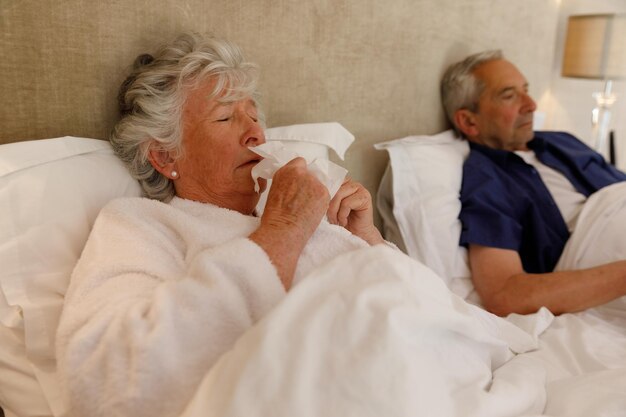Your Guide to Does Medicare Cover Sleep Apnea Test
What You Get:
Free Guide
Free, helpful information about Medicare FAQ and related Does Medicare Cover Sleep Apnea Test topics.
Helpful Information
Get clear and easy-to-understand details about Does Medicare Cover Sleep Apnea Test topics and resources.
Personalized Offers
Answer a few optional questions to receive offers or information related to Medicare FAQ. The survey is optional and not required to access your free guide.
Does Medicare Pay for Sleep Apnea Tests? Here’s What You Need to Know
Sleep apnea affects millions of Americans, leading to restless nights and a host of potential health problems. If you're on Medicare, you might wonder if a sleep apnea test is covered and how to access this crucial diagnostic tool. Let's explore how Medicare handles coverage for sleep apnea testing and what other financial resources might be available to you.
Understanding Medicare Coverage
Medicare Part B typically covers sleep studies when your doctor orders them as part of diagnosing sleep apnea. However, certain criteria must be met, including showing symptoms like excessive daytime sleepiness, loud snoring, or episodes of impaired breathing during sleep. Medicare usually covers:
- At-home sleep studies (often called home sleep apnea tests, or HSATs)
- Polysomnography performed in a sleep clinic or lab
These tests are deemed necessary for diagnosing sleep apnea and determining the right treatment, which may include therapies like CPAP (Continuous Positive Airway Pressure).
What Are the Costs?
Medicare Part B covers 80% of the approved amount for sleep studies, but you'll need to pay the remaining 20%, along with your deductible, unless you have supplemental insurance that covers these additional costs. Discussing your out-of-pocket expenses with your healthcare provider or insurance representative is wise to avoid unexpected bills.
Expanding Your Financial Options
While Medicare can significantly aid in covering medical expenses related to sleep apnea, additional ways exist to manage your healthcare costs. Exploring these can help if you're concerned about the expenses related to treatment or if Medicare doesn't fully cover your needs:
Government Assistance Programs
- Medicaid: If you're eligible, it can complement Medicare, potentially covering additional costs related to sleep apnea diagnosis and treatment.
Financial Assistance and Debt Relief
- Look into non-profit organizations that assist with medical expenses for those diagnosed with chronic conditions. This can be helpful for those struggling with costs beyond what Medicare covers.
- Consider reaching out to hospitals or clinics for financial assistance programs they might offer to reduce your medical expenses.
Credit and Payment Solutions
- Investigate medical credit cards designed for healthcare expenses. These might offer favorable terms compared to regular credit cards, often with no interest financing options for a set period.
Educational Grants and Scholarships
- If your sleep issues affect your ability to pursue education or work, look into scholarships for disabilities. These can provide financial support, allowing you to focus on your health and education simultaneously.
Encouraging a Proactive Approach
Diagnosing and treating sleep apnea can significantly enhance your quality of life. With Medicare's coverage, pursuing a prescription from your healthcare provider is a step towards better sleep. Simultaneously, leveraging government programs, credit solutions, and financial assistance can help manage associated costs effectively. Taking these proactive steps will empower you to focus on regaining restful sleep without undue financial stress.
Financial Resource Highlights 🎯
- Medicaid: Complements Medicare for those eligible, covering additional healthcare costs.
- Non-Profit Aid: Organizations that offer financial aid for medical expenses.
- Medical Credit Cards: Provide interest-free periods for healthcare payments.
- Hospital Financial Assistance: Programs offered by medical facilities to reduce patient costs.
- Scholarships for Disabilities: Financial aid opportunities to support education despite health challenges.

Discover More
- a Medical Provider That Accepts Medicare Assignment Must
- a Medical Provider That Accepts Medicare Assignment Must Quizlet
- a Medicare Patient Received Treatment That Isn't Covered By Medicare
- a Medicare Patient Receives Treatment That Isn't Covered By Medicare
- a Medicare Supplement Basic Benefit Is Quizlet
- a Medicare Supplement Companies
- a Medicare Supplement Policy Is Quizlet
- a Medicare Supplement Policy Must Not Contain Benefits Which
